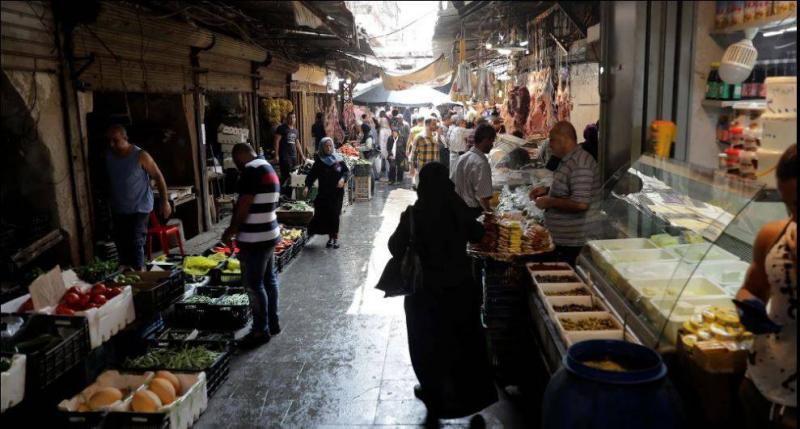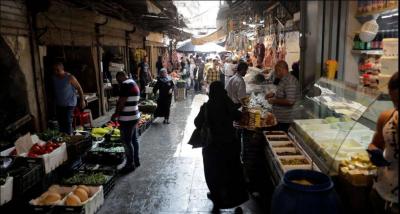For many Lebanese, this year's Ramadan is unlike what they used to know. They feel compelled to abandon traditional staples at iftar tables, as mismanagement by governments during economic crises forces them into an involuntary dietary regimen. In recent days, hundreds of thousands of Lebanese families have begun receiving symbolic cash assistance from a program supported by the World Bank, which states that food inflation has reached around 400% in a country ranked among the three worst economic crises in the world in over a century, following the collapse in Lebanon at the end of 2019.
A year ago, UNICEF conducted a survey in April 2021, revealing that three out of ten families had at least one child who went to bed without dinner or skipped at least one meal in a country where three-quarters of its 6 million residents have been thrown into the depths of poverty, making them the most miserable, according to the "annual happiness report" released by the United Nations' Sustainable Development Solutions Network two weeks ago.
According to experts, living conditions for Lebanese have not improved since last Ramadan; in fact, the prices of basic foodstuffs have doubled due to mismanagement and traders' greed, along with the repercussions of the Russian-Ukrainian war. This has left Samia Bakhazi, who usually maintains her composure while working in their small home meal kitchen in Beirut, bewildered as she repeatedly recalculates and mutters in frustration: "How much shall I sell the Ramadan iftar meal for at these prices, and who will buy it to eat?"
For Jamil Garab (51), disappointment came before Ramadan began, after receiving a notice from his electric generator's owner announcing the start of the new month, during which electric supply hours increase until suhoor, giving him two options: either to raise his electricity consumption cost in his Beirut home from about $80 to $130, or he “will have to sadly” turn off the generators.
Jamil scoffs at these sudden decisions with the arrival of Ramadan, saying, "It's as if we are choosing between two diseases, high blood pressure or diabetes, meaning either comply and pay the subscription owner, or we buy sweets. So, we decided to succumb to the pressure and avoid the diabetes."
Jamil believes that government policies have imposed a forced dietary regimen on Lebanese, perhaps even more so. He states that, like many Lebanese, "I feel as though we are cast aside on the roadside." Meanwhile, Samia in her small kitchen points to a plate of fattoush, astonished, saying, “For fifty thousand lira, who will eat it? I will make it optional for those who request it with their iftar meal?”
The “International Information” company, specialized in statistics and studies, published a study on Friday confirming Samia's estimates, revealing that the cost of a fattoush dish for five people was 4,250 lira in 2020, and it has now risen to 50,530 lira, marking an annual increase of 311%, amid significant rises in the prices of its ingredients like tomatoes, cucumbers, onions, mint, radishes, olive oil, and lemon, with lettuce price, for example, increasing from 3,000 lira to 15,000 lira.
Economic expert Dr. Fadi Ghosn agrees with the phenomenon of a forced dietary regimen imposed on Lebanese generally, stating that in addition to internal crises and globally high inflation rates, there has been a crazy surge in food prices, and expensive food items, like meats, have disappeared from many tables, pushing Lebanese to seek cheaper alternatives, even resorting to rationing the cooking ingredients or the dish itself, adding cheaper components, replacing the expensive ingredients in salad dishes.
Traditionally, Ramadan iftar meals consist, alongside fattoush, of lentil soup, juice, dates, and dough pastries, in addition to the daily main dish and Ramadan sweets. Last Ramadan, such a meal was sold for about 35,000 lira, but Samia, now bewildered in her kitchen, points out that she will allow the customer to omit one or more components from this complete meal based on their financial capacity, meaning she might sell the main dish to those who wish, without the other components, or they can choose among what is within their budget.
Samia lists the food ingredients whose prices have skyrocketed asking, “Even if I sold the Ramadan meal for 150,000 lira, I would still be at a loss, and I do not have the heart to sell at a price higher than that to people.” For this reason, Samia has canceled many items from her weekly menus, including a roasted meat dish which has reached about 300,000 lira per kilogram, not to mention the cost of boiled vegetables and potatoes alongside it. She exclaims in disbelief, “Even many of the affluent sometimes complain about the prices of dishes. Do you know that a dozen of falafel is now 70,000 lira?”
Fadi Ghosn fears the consequences of living under the theory of a "failed state" that lacks the ability to provide food security for its citizens, where more than half live below the minimum living standard. He notes, "Unfortunately, we have not seen any proactive official plan to address any future emergencies, whether it's rising prices or even shortages of basic goods (oils, sugar, wheat, fuel), and reactions are typically delayed or limited to studies. Remedies come from the private sector at exorbitant costs borne by the citizen.”
In the famous Al-Antabli sweet shop in Beirut, Maamoun Al-Antabli does not seem less puzzled than Samia, saying with sorrow, "This year, there are no sweets. We won't sell qatayef or kolozh. Who will eat them? Maybe King Richard will if he rises from his grave." Al-Antabli added angrily, "A bottle of pomegranate juice will be sold for 260,000 lira. What’s happening is indescribable. This is blasphemy. They are pushing people to steal to eat."




